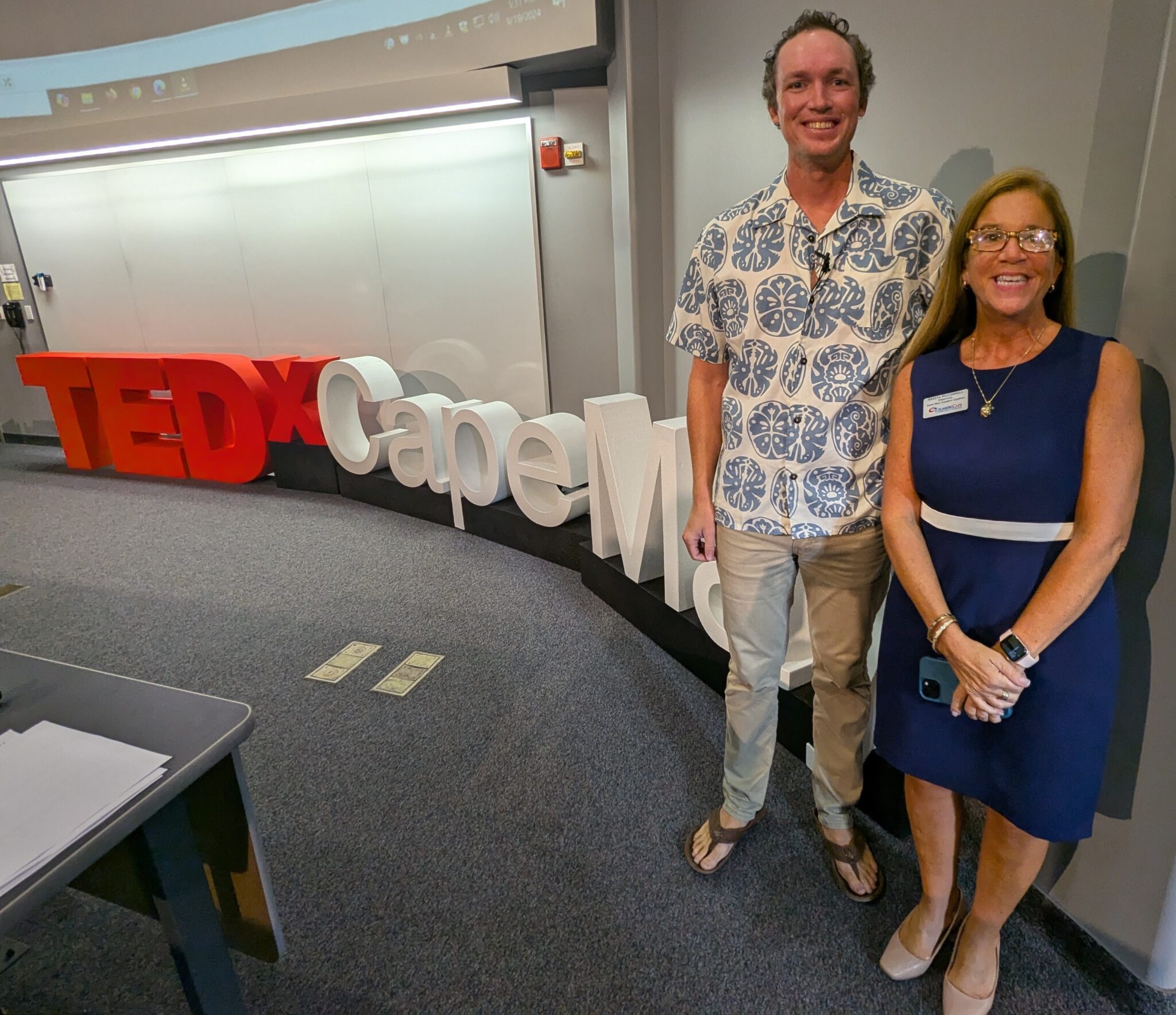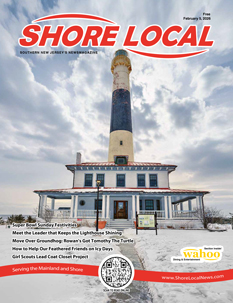Cape May is an amazing midway point for millions of monarch butterflies during their long and arduous annual spring/summer journey north from Mexico to their final destination in southern Canada. They return again on their subsequent return trip south in the fall as they search for their critical feeding and reproductive sources of milkweed.
As vital habitats necessary to the monarch’s survival, such as forests and milkweed plants, are being eradicated it is important to fully understand, through new advanced tracking technologies, their migratory movements and patterns to ensure their survival.
Dr. Sean Burcher of Project Monarch, a high-tech community science effort to provide scientists and conservationists with the critical data needed to protect this endangered and iconic species, lead the inaugural event of TEDxCapeMay’s 13th season, titled “New Horizons,” before a full lecture hall at Atlantic Cape Community College’s Cape May County campus on September 19.
Project Monarch is utilizing advances in modern technology to create minute trackers that are actually adhered to the butterflies themselves, thus allowing scientists to track their movements. Concerned citizens may track these results as well through the Project Monarch app.

A view of the Cape May County campus lecture hall during Dr. Sean Burcher’s Project Monarch presentation.
“The data provided allows us to know exactly where they move and how they use habitats. This allows conservationists to identify crucial locations, so they can then focus their limited resources they have on restoration efforts on the spots where they know it is going to have the greatest impact,” said Dr. Burcher, who is a research & development specialist with Cellular Tracking Technologies in Rio Grande where he designs and builds cutting-edge wildlife tracking devices for monarchs, birds, penguins, elephant seals and sharks. He is also the Science Director at the Cape May Point Science Center. “And then, combined with year-over-year tracking, we will have a way to assess how effective those efforts were.”
Environmental and human conditions are pushing pollinators like the monarch butterfly to near extinction all across North America.
“Loss of habitat is the big reason for monarchs being endangered. There’s deforestation for logging efforts throughout the Midwest, there’s commercial farming which eliminates weeds like milkweed, which the monarch needs to live,” said Dr. Burcher, who is a Southern New Jersey native who spent his summers on the beaches of Cape May working as a beach badge tagger, studied physics at Rutgers University and earned his Ph.D. in Nuclear Astrophysics from the University of Tennessee.
Pollinators like the monarch butterfly, bees and hummingbirds, just to name a few, are an important staple of our ability to grow food and plants. Without them we would not enjoy the many fruits and vegetables from lettuce, kale and cauliflower to apples, bananas and peaches.
According to Dr. Burcher, creating your own pollinator habitat at home is an easy way to help the monarchs survive and thrive. By filling your garden with indigenous plants and milkweed you will provide monarchs, bees and more with a place to rest, eat, hatch their eggs and pollinate. He also stated that it is important to stay interested and engaged with your community science efforts as well.

Dr. Sean Burcher of Project Monarch and Atlantic Cape Community College Cape May County campus Director Krista McConnell.
This live filmed discussion was the first ever TEDx event to be hosted at Atlantic Cape’s Cape May County campus. Martin Fiedler, the College’s instructor of video technologies, brought three of his Digital Media I class students – James McKelvey, Emilio Soto and Anton Shupiko, along to help video record the event.
Visit capemaypointsciencecenter.org/project-monarch for more information on Project Monarch at the Cape May Point Science Center.
Visit atlanticcape.edu/capemay for more information on how to register for classes at Atlantic Cape’s Cape May County campus.
Literary and photographic credit: Atlantic Cape Community College












